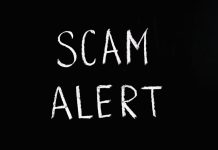Today, almost every individual is stuck deep in the tar of debt. No matter what type of debt has been the cause of your worries, I am sure that you are trying your best to deal with it.
If you have reached here, there is a strong possibility that you may get more help for your efforts of reducing your debt, especially for your personal debt. How?
Here, I have put together a list of 15 of the most helpful debt reduction tips that you may have ignored or forgotten about. Give the ones a try that make the most sense according to your situation, and you’ll be on your path to live a less stressful life.
Shall we begin?
15 Pro Tips for Personal Debt Reduction

1. Create an emergency fund
If you come across any extra money, whether by annual bonuses, tax refunds, or other means, waste no time to make an emergency fund.
Deposit the maximum possible amount (minimum $1000) in this account so that you can eliminate the chance of borrowing money, using credit cards, or spend the bill money in the case of an emergency. You can use the remaining amount to pay off the debt.
2. Calculate all of your liabilities
t is important to know exactly how much your debt is. Without this, it will be hard to decide what plan of action will best suit your situation.
Make a habit of keeping the track of all your debts such as interest amounts, monthly payment amounts, balances, and a grand total of all your balances in a spreadsheet, and always keep it fully updated as you pay off debt.
3. Go for lower rates or settlements
Ask your creditors or lenders to revise the terms on your debts. A positive behavior can go a long way and with its help, you may convince them to lower your interest rates or, in some situations, even discuss a debt settlement (less than the full amount owed).
4. Never ask for money
This means not to make purchases with credit cards, home equity lines, cash advances if there is actually no need.
Keep your mind focused on paying cash, and this will force you to ask yourself, “Can I manage without this?”
However, not all debt is bad. It’s helpful to be knowledgeable about debt management since there’s a difference between good debt and bad debt.
5. Avail credit counseling
A perfect way to get help in working out a payment plan for your debts. In the vast majority of cases, these non-profit organizations can prove to be of a great help.
You make one single monthly payment to the consumer credit counseling agency, and the agency then distributes the payments to the respective creditors on your behalf.
6. Consider Debt Snowball
Using this method of debt repayment, you can focus more on paying the maximum of what you can for a single debt, while paying minimum amounts of the remaining debts.
At the completion of one loan, you choose another one to pay off while continuing to carry on with the minimum balances on the rest.
7. Consolidate high-interest debt with a low-interest loan
While you’ll need to own a property or have other assets to use as security to get a loan, this could be a way to clear off many debts in a single blow.
Of course, you’ll still have to pay back the bank loan, but it makes much more sense to pay for one bank loan than to pay for 6 credit cards that too with high-interest rates.
8. Study your expenses
Get rid of all the avoidable expenses. It could be a gym membership that is not in use, magazine subscriptions, and anything that could be considered as a “want” rather than a “need”.
You need to stay honest about what you can pass on as a “want” until you’re out of debt, or drastically reduced the debt.
9. Make a practical budget
Following the trail of your money is the first step to save more money and pay down your debt.
Put as much money as possible towards an emergency fund (see Tip 1) and pay down debt, but also keep some room for some “fun” too, as a lot of people will find it hard to make way through an overly strict budget for a long time duration.
10. Plan Ahead
Apart from making a regular budget, develop a plan for the future expenses like birthdays and holidays, so that you can avoid going into debt when they come up.
11. Plan monthly meetings
Talk about your budget and debt situation with your partner. Discuss your progress in the meeting, suggest ideas to pay down the debt rapidly, and develop an effective action plan with particular steps to take throughout the next month.
12. Trash your credit card information online
This tip is for those who do a lot of online shopping at fixed retailers and have stored the credit card information on those sites.
It will be way too easy to carry on charging items that you don’t need. Remove the information of your credit card from these sites so you can put a halt on shopping online for unnecessary things and add more debt.
13. Stick to your current lifestyle even when your income increases
This is a common mistake made by many debtors. Instead of buying a new expensive gadget or planning to change your car when your income increases, use that extra money to beat debt down in the ground.
14. Find ways to earn more money
Sometimes stretching your current income can be difficult or in some cases impossible. In this case, look for seasonal jobs or temporary work, or begin a side business to push your income a little further. That extra income will bring your debt down and you will be debt-free sooner.
15. File a bankruptcy
It should be considered as a last resort since it reflects on your credit report for up to 10 years. Another disadvantage of bankruptcy is that it is a matter of public record that can be accessed by anyone.
In addition, you’ll have to appear in Federal Court for hearings and the Court could need a court-appointed trustee to oversee your estate.
If handled correctly, these tips can do wonders for your debt situation because sometimes big things come in small packages. Good luck!
Related:
- Debt Consolidation Loans And Its Impact on Your Overall Credit Rating
- Trouble with Business Debt – Effective Prevention Tactics
- Debt Settlement 101: 6 Things to Remember
Author: Thomas Jhonson















